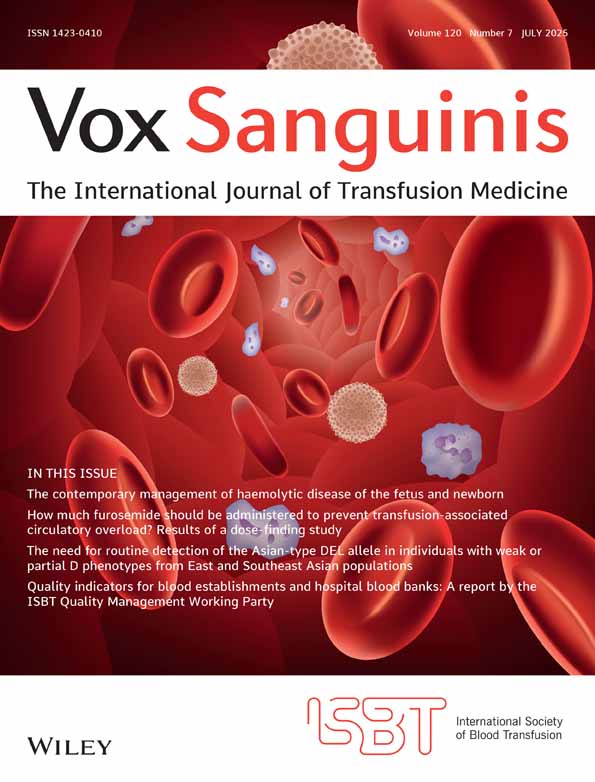Determination of Granulocyte-Specific Antigens on Neutrophil Fcγ Receptor IIIb by PCR-Preferential Homoduplex Formation Assay, and Gene Frequencies in the Japanese Population
Abstract
Background and Objectives: Granulocyte-specific antigens play an important role in provoking immune neutropenia and transfusion reactions. We developed a new DNA-typing method, PCR-preferential homoduplex formation assay (PHFA), to determine granulocyte-specific antigens on the neutrophil Fcγ receptor IIIb (FcγRIIIb, CD 16b), namely, the NA1, NA2, and SH antigens and their gene frequencies in the Japanese population. Materials and Methods: Four hundred unrelated healthy Japanese blood donors were typed using PCR-PHFA. To confirm the accuracy of the results of FcγRIIIB genotyping using PCR-PHFA, PCR-sequence-specific primer (SSP) typing and PCR-restriction fragment length polymorphism (RFLP) typing were carried out in another 20 samples for comparison. Results: The results of PCR-PHFA typing agreed well with other methods. The frequencies of the FcγRIIIB alleles were 62.2, 37.8, 0 and 0% for NA1, NA2, SH, and ‘NA-null’, respectively. Conclusion: The PCR-PHFA method can be semi-automated easily with computer-based assignment and is suitable for typing both small and large numbers of samples. In the Japanese population, the frequency of NA1 is about double that in Caucasians (32.5%), and the SH allele is rare.




